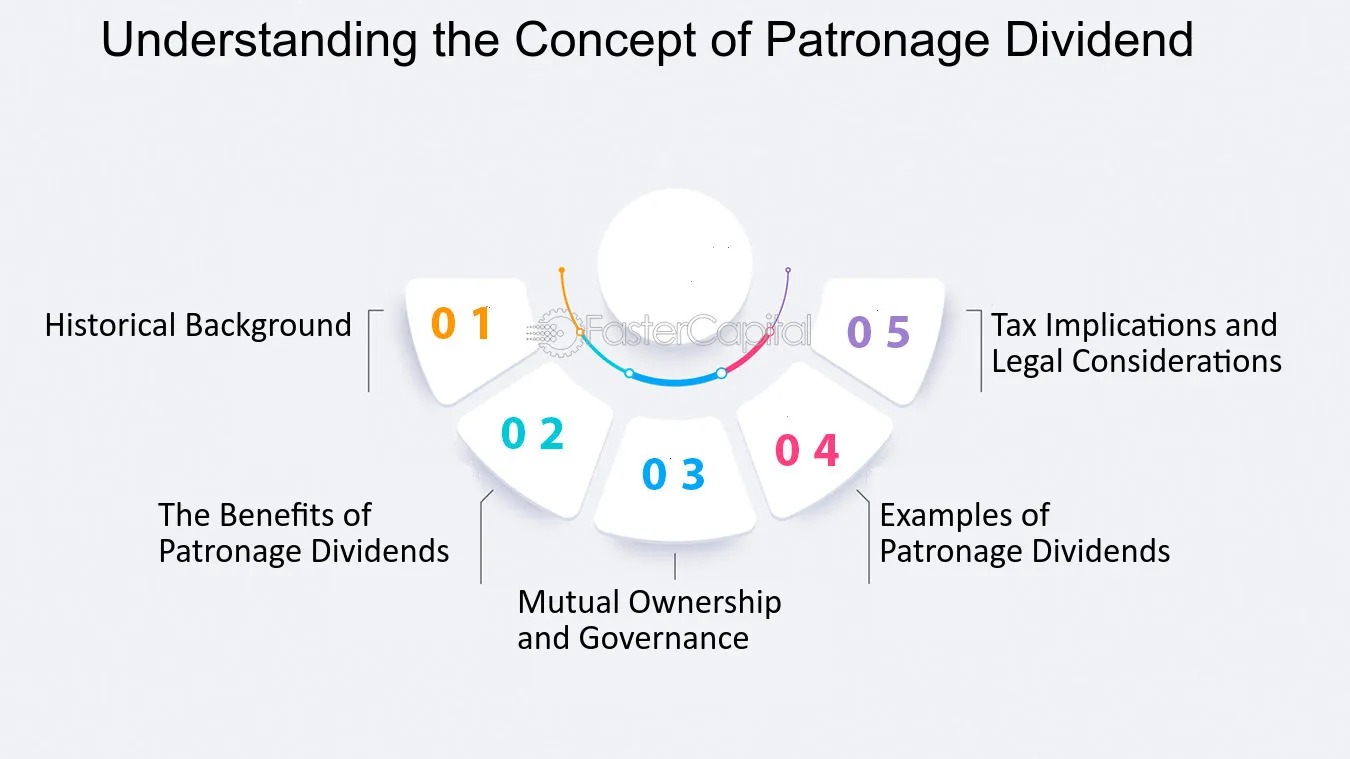

Finance
What Is A Real Estate Investment Group?
Modified: January 16, 2024
Learn about real estate investment groups and how they can help you finance your property investments. Find out how to join and benefit from a collective investment approach to real estate.
(Many of the links in this article redirect to a specific reviewed product. Your purchase of these products through affiliate links helps to generate commission for LiveWell, at no extra cost. Learn more)
Table of Contents
- Introduction
- Definition of a Real Estate Investment Group
- Benefits of Joining a Real Estate Investment Group
- How Real Estate Investment Groups Work
- Types of Real Estate Investment Groups
- How to Join a Real Estate Investment Group
- Risks and Considerations of Real Estate Investment Groups
- Case Studies: Successful Real Estate Investment Group Examples
- Conclusion
Introduction
A Real Estate Investment Group, also known as an REIG, is a collective of investors who pool their resources and expertise to invest in real estate properties. These groups offer individuals who may not have the capital or knowledge necessary to invest in real estate individually, the opportunity to enter the real estate market and reap the benefits of property ownership and investment.
Real estate investment groups have risen in popularity in recent years due to the multitude of benefits they offer. By joining an investment group, participants can diversify their portfolios, reduce risk, access professional advice, and enjoy passive income streams.
In this article, we will explore the definition and workings of real estate investment groups, outline the different types of groups that exist, explain how to join one, and discuss the associated risks and considerations. We will also provide real-life case studies of successful real estate investment groups to highlight their potential for financial success.
Whether you are a seasoned investor looking to expand your portfolio, or a newcomer interested in entering the real estate market, understanding real estate investment groups and their potential benefits is essential. Let’s delve into this fascinating world of collective real estate investment and see how you can make the most of it.
Definition of a Real Estate Investment Group
A Real Estate Investment Group (REIG) is a collective of individuals who pool their resources and invest in real estate properties as a group. The group is typically formed with the intention of generating income through rental properties or selling properties for profit.
Members of a real estate investment group contribute financial capital, knowledge, and expertise to the group. The pooled resources allow the group to invest in larger and more lucrative properties that would be difficult for an individual investor to acquire on their own.
Real estate investment groups can take different forms, such as partnerships, limited liability companies (LLCs), or real estate investment trusts (REITs). Each group structure has its own advantages and considerations, but the common goal remains the same – to generate returns through real estate investments.
The primary advantage of joining a real estate investment group is the ability to access opportunities that may not be available to individual investors. By pooling resources, group members can invest in properties that have higher purchasing power, better locations, or more potential for rental income. This allows investors to diversify their portfolios and minimize risk, as they are not solely dependent on the performance of a single property.
Real estate investment groups also provide access to professional expertise. Group members can benefit from the knowledge and experience of other investors, real estate agents, property managers, and other professionals who are part of the group. This expertise can help in decision-making, property selection, property management, and overall investment strategy.
Furthermore, real estate investment groups offer a more passive way of investing in real estate. While individual property ownership requires active involvement in property management, joining an investment group allows investors to enjoy passive income streams. The group handles property management, maintenance, tenant selection, and other operational tasks, relieving individual investors of the associated responsibilities.
It’s important to note that each real estate investment group may have its own rules, structures, and requirements. Some groups may focus on residential properties, while others may specialize in commercial or industrial properties. Therefore, individuals interested in joining an investment group should carefully consider their investment goals, risk tolerance, and align them with the goals and structure of the group.
Benefits of Joining a Real Estate Investment Group
Joining a real estate investment group offers numerous benefits for individuals who are interested in investing in real estate but may not have the capital, expertise, or time to do it on their own. Let’s explore some of the key advantages of joining a real estate investment group:
- Diversification: Real estate investment groups allow individuals to diversify their investment portfolios. By pooling resources with other group members, investors can gain exposure to a variety of properties in different locations and sectors. This diversification helps spread risk and mitigates the potential negative impact of a single property’s performance.
- Shared expertise: Real estate investment groups provide access to a wealth of knowledge and expertise. Group members can tap into the experience of seasoned investors, property managers, and professionals within the group. This collective expertise can help in making informed investment decisions, identifying lucrative opportunities, and navigating potential challenges.
- Increased purchasing power: By joining forces with other investors, real estate investment groups have greater purchasing power. This allows the group to invest in properties that may be out of reach for individual investors. The ability to acquire larger or more desirable properties increases the potential for higher returns and greater long-term appreciation.
- Passive income: One of the main attractions of real estate investment groups is the opportunity to enjoy passive income. Group members can sit back and rely on the group to handle property management, tenant screening, rent collection, and maintenance tasks. This allows investors to earn income without the day-to-day responsibilities of being a landlord.
- Risk reduction: Investing in real estate always carries a certain level of risk. However, by participating in a real estate investment group, individuals can minimize their exposure to risk. The diversified portfolio, shared resources, and expertise within the group help in mitigating risks and enhancing the likelihood of overall positive returns.
- Economies of scale: Real estate investment groups benefit from economies of scale. By acquiring multiple properties, the group can negotiate better deals, access bulk discounts, and reduce expenses related to property management and maintenance. This maximizes the potential returns and enhances the profitability of investments.
- Network and connections: Joining a real estate investment group provides an opportunity to build a network of like-minded individuals. This network can be valuable for future investment opportunities, partnerships, and accessing a broader range of resources within the real estate industry. The connections made within the group can open doors to further growth and investment prospects.
Overall, joining a real estate investment group offers numerous advantages. From diversification and shared expertise to increased purchasing power and passive income, these groups allow individuals to enter the real estate market with confidence and reap the benefits of this lucrative investment avenue.
How Real Estate Investment Groups Work
Real estate investment groups function by pooling the resources, capital, and expertise of individual investors to invest in and manage properties collectively. Let’s take a closer look at how real estate investment groups work:
- Formation: An investment group is formed by a group of individuals who have a common interest in investing in real estate. They come together and establish the framework, rules, and structure of the group. This can be a formal partnership, limited liability company (LLC), or even a real estate investment trust (REIT).
- Pooling of resources: Each member of the investment group contributes their own capital to a pooled fund. The combined resources allow the group to make larger investments than what would be possible for individual investors. This pooled capital forms the financial backbone of the real estate investment group.
- Property selection: The group collectively decides on the criteria for property selection, such as location, type, and potential return on investment. Group members collectively analyze and evaluate potential properties, leveraging their combined expertise to make informed decisions. Once a property is selected, the group collectively decides on the acquisition strategy.
- Property management: Real estate investment groups typically have a designated property manager or management team responsible for property operations. They handle tasks such as tenant screening, rent collection, property maintenance, and resolving issues that may arise. This allows individual investors in the group to enjoy the benefits of passive income without the burdens of day-to-day property management.
- Income distribution: The profits generated from rental income or property sales are distributed among the group members based on the agreed-upon distribution structure. This distribution may be proportional to the amount of capital contributed by each member or based on pre-determined profit sharing arrangements.
- Decision-making: The governance structure of the real estate investment group determines the decision-making process. Depending on the group’s structure, major decisions such as property acquisitions, financing, and strategic planning may be made through group consensus or by designated individuals within the group.
- Exit strategy: Real estate investment groups have different exit strategies in place. Some groups may hold properties for the long term, while others may have a medium-term plan to sell properties once they have appreciated in value. The exit strategy should align with the group’s investment goals and the agreed-upon timeframe for holding each property.
It’s important to note that the specific workings of real estate investment groups can vary depending on the group’s structure and objectives. Some investment groups may focus on a specific type of property, while others may diversify across different property types and locations. Understanding the operation and dynamics of the particular investment group is crucial before joining.
In summary, real estate investment groups function by combining the resources and expertise of individual investors to acquire, manage, and profit from real estate properties collectively. By pooling their resources, investors can enjoy the benefits of greater purchasing power, shared knowledge, reduced risk, and passive income streams.
Types of Real Estate Investment Groups
Real estate investment groups come in various forms, each with its own structure, objectives, and considerations. Here are some of the common types of real estate investment groups:
- Partnerships: Partnership-based real estate investment groups are formed when a group of individuals come together to invest in properties. Each partner contributes capital and shares in the profits, losses, and decision-making responsibilities of the group. Partnerships provide flexibility and allow for direct ownership of properties.
- Limited Liability Companies (LLCs): Real estate investment groups can also be structured as limited liability companies. This structure provides limited liability protection for the members while maintaining the flexibility of partnerships. LLCs allow for clear delineation of ownership interests and provide a central management structure for decision-making and operations.
- Real Estate Investment Trusts (REITs): REITs are publicly traded companies that pool investor capital to invest in a portfolio of income-generating real estate properties. REITs offer individual investors the opportunity to invest in a diversified real estate portfolio without the need to directly own, manage, or finance properties. They provide liquidity as their shares can be bought and sold on stock exchanges.
- Crowdfunding Platforms: Crowdfunding platforms have gained popularity in recent years as a way for individuals to invest in real estate. These platforms allow investors to contribute capital towards specific real estate projects, such as residential or commercial developments. The crowdfunding platform manages the investment process, property management, and distribution of returns.
- Real Estate Syndications: Real estate syndications involve a group of investors pooling their resources to acquire and manage a specific property or properties. A syndicator, typically an experienced real estate professional, takes the lead in identifying and structuring the investment opportunity. Investors can contribute capital and participate in the profits and decision-making process.
- Private Real Estate Funds: Private real estate funds are professionally managed investment vehicles that pool capital from accredited investors to invest in various real estate assets. These funds have specific investment strategies and objectives, such as focusing on certain property types, geographic regions, or risk profiles. Private real estate funds offer access to a wider range of investment opportunities that may not be available to individual investors.
It’s important for potential investors to understand the nuances and requirements of each type of real estate investment group. Factors to consider include investment minimums, liquidity, control over decision-making, risk tolerance, and the level of involvement desired.
Additionally, real estate investment groups may specialize in different property types, such as residential, commercial, industrial, or mixed-use properties. Some groups may focus on specific geographic areas or investment strategies, such as value-add properties or income-generating assets. Understanding the specific focus of an investment group is crucial in determining alignment with individual investment goals and preferences.
In summary, real estate investment groups can take various forms, ranging from partnerships and LLCs to REITs, crowdfunding platforms, real estate syndications, and private real estate funds. Each type offers its own set of advantages and considerations, allowing investors to choose the structure that best aligns with their investment objectives and preferences.
How to Join a Real Estate Investment Group
Joining a real estate investment group can be an excellent way to enter the world of real estate investing and benefit from the collective resources and expertise of the group. Here are some steps to consider when looking to join a real estate investment group:
- Research: Start by researching different real estate investment groups in your area or those that align with your investment goals. Look for groups that have a solid track record, positive reviews, and members with experience in successful real estate investments. Consider joining local real estate investment associations or attending networking events to connect with potential groups.
- Assess your goals: Determine your investment goals, risk tolerance, and desired level of involvement in the group. Clarify what you hope to achieve through real estate investing and identify the type of properties or investment strategies that interest you. This will help you find an investment group with compatible goals and strategies.
- Network: Attend real estate investment seminars, workshops, or meetups to expand your network. Networking with other real estate investors can provide valuable insights and potential opportunities to join investment groups. Use online platforms, such as social media or specialized real estate forums, to connect with like-minded individuals and explore group opportunities.
- Get referrals: Seek referrals from trusted sources, such as friends, family, or colleagues who may already be part of a successful real estate investment group. Personal recommendations can provide valuable insights into the group’s dynamics, investment approach, and overall success rate.
- Interview potential groups: Once you have identified potential real estate investment groups, arrange to meet with the group members or key stakeholders for an interview or discussion. This allows you to ask questions, understand their investment strategies, assess the group’s track record, and determine if the group is the right fit for you.
- Understand the group’s structure: Learn about the specific structure, rules, and requirements of the investment group. Understand how decisions are made, how profits are distributed, and what level of involvement is expected from members. Clarify any costs or fees associated with joining and participating in the group.
- Perform due diligence: Conduct thorough due diligence on the group and its members. Review the group’s financials, investment portfolio, and any legal documents such as partnership agreements or operating agreements. It’s prudent to consult with a real estate attorney or financial advisor to ensure you understand the implications of joining the group.
- Joining the group: If you feel confident and comfortable with a specific real estate investment group, express your interest in joining. Some groups may have a formal application process, while others may require an initial investment or minimum capital commitment. Be prepared to contribute your share of capital and comply with all membership requirements.
- Stay engaged: Once you have joined a real estate investment group, remain actively involved in the group’s activities. Attend meetings, contribute insights and expertise, and build relationships with other members. Staying engaged facilitates learning, networking, and maximizing the benefits of being part of the investment group.
Remember, when joining a real estate investment group, it’s essential to align your investment goals and risk tolerance with the group’s objectives. Participating in a group that shares your investment philosophy and values can enhance your chances of success and make the journey more enjoyable and fulfilling.
Risks and Considerations of Real Estate Investment Groups
While real estate investment groups offer numerous advantages, it’s important to consider the potential risks and factors that may affect your decision to join. Here are some key risks and considerations associated with real estate investment groups:
- Risk of property underperformance: Real estate investments are subject to market fluctuations and property-specific risks. Not all properties may perform as anticipated, and there is the possibility of experiencing lower rental income or property value depreciation. It’s important to thoroughly analyze potential investments and understand the associated risks before committing capital.
- Limited control: Joining a real estate investment group means sharing decision-making responsibilities with other members. You may have limited control or influence over the choice of properties, management decisions, or exit strategies. It’s crucial to understand and be comfortable with the level of control you will have within the group structure.
- Dependency on the group: The success of a real estate investment group relies on the collective efforts, capabilities, and reliability of the group members. If the group lacks strong leadership, communication, or financial stability, it may impact the group’s ability to perform and distribute returns. Assess the competency and dedication of the group members before joining.
- Liquidity and exit challenges: Real estate investments are generally considered illiquid, and exiting an investment may not be as straightforward as selling publicly traded stocks. Real estate investment groups may have specific timelines, lock-in periods, or restrictions on withdrawing capital. Consider your investment timeframe and liquidity needs when evaluating a group’s structure and exit policies.
- Incompatibility of investment goals: Joining a real estate investment group requires alignment of investment goals and risk appetite with the group’s objectives. If your investment preferences are significantly different from the group’s strategy or if the group’s risk tolerance is not compatible with yours, it may lead to conflicts and compromised investment decision-making.
- Operational risks: Real estate investment groups involve property management, tenant selection, and ongoing maintenance responsibilities. Inefficient or inadequate property management practices can impact rental income and property performance. Assess the group’s management capabilities and consider the potential risks associated with property operations and maintenance.
- Legal and contractual considerations: Real estate investment groups may have legal agreements, such as partnership agreements or operating agreements, that outline the rights, responsibilities, and obligations of the members. It’s crucial to carefully review and seek legal advice on these agreements to fully understand your rights and the terms of your participation in the group.
Before joining a real estate investment group, it’s essential to conduct thorough due diligence, analyze the associated risks, and consider how these risks align with your investment goals and risk tolerance. It’s advisable to consult with professionals, such as real estate attorneys and financial advisors, to ensure you have a clear understanding of the risks and considerations involved.
Ultimately, joining a real estate investment group should be a well-informed decision based on a comprehensive evaluation of the risks and rewards associated with the group and the investment opportunities it presents.
Case Studies: Successful Real Estate Investment Group Examples
Examining successful real estate investment groups can provide valuable insights into the potential for financial success and the benefits of joining such groups. Let’s explore a few case studies of real estate investment groups that have achieved notable success:
- The Blackstone Group: The Blackstone Group is one of the world’s largest real estate investment groups, with a diversified portfolio spanning residential, commercial, industrial, and hospitality properties. The group has successfully executed various investment strategies and has consistently delivered impressive returns to its investors. Their expertise in acquiring undervalued properties, implementing value-add strategies, and effectively managing assets has contributed to their success.
- The Carlyle Group: The Carlyle Group is another prominent real estate investment group that has achieved exceptional results. With a global presence, the group focuses on investing in a wide range of real estate sectors, including residential, office, retail, and mixed-use properties. Their investment approach combines deep market research, strong industry relationships, and active asset management to optimize property performance and generate attractive returns.
- Local Real Estate Investment Clubs: Real estate investment clubs at the local level have also been instrumental in fostering successful investment groups. These clubs bring together individual investors interested in real estate and provide a platform for networking, knowledge sharing, and potential group investing opportunities. Members collaborate on joint investments, leverage local market knowledge, and support each other’s investment endeavors.
- Real Estate Crowdfunding Platforms: Real estate crowdfunding platforms have gained traction in recent years and have enabled numerous successful investment projects. Platforms like RealtyShares, Fundrise, and RealtyMogul allow individual investors to access a wide range of real estate opportunities across residential and commercial sectors. These platforms leverage the power of technology and online communities to bring together investors and property developers, transforming the landscape of real estate investing.
- Community Investment Groups: Community-based real estate investment groups have emerged as a powerful force in revitalizing neighborhoods and making a positive impact. These groups focus on acquiring and rehabilitating distressed properties, providing affordable housing, and contributing to community development. Such initiatives not only generate financial returns but also have the potential to revitalize neighborhoods and improve quality of life.
These case studies demonstrate the diverse range of successful real estate investment groups, from global enterprises to local clubs and community-driven initiatives. While each group may employ different strategies and approaches, they all share a common thread of strong leadership, sound investment decisions, and effective property management.
It’s important to note that success in real estate investment groups is not guaranteed, and individual results may vary. Prior research, due diligence, and alignment of investment goals are crucial when considering joining an investment group. Learning from the successes of established groups can provide valuable insights and inspiration for individuals looking to participate in real estate investment groups.
Conclusion
Real estate investment groups offer individuals the opportunity to invest in real estate properties collectively, pool resources, and leverage the expertise of other group members. Joining a real estate investment group provides several benefits, including diversification, shared expertise, increased purchasing power, passive income, risk reduction, economies of scale, and access to a valuable network.
When considering joining a real estate investment group, it is essential to understand the different types of groups available, such as partnerships, LLCs, REITs, crowdfunding platforms, real estate syndications, and private real estate funds. Each type has its own advantages and considerations, and it’s vital to align with a group that matches your investment goals and risk tolerance.
However, it is important to acknowledge the risks and considerations associated with real estate investment groups. These include the risk of underperforming properties, limited control, dependency on the group, liquidity challenges, compatibility of investment goals, operational risks, and legal and contractual considerations. Conducting thorough due diligence and consulting with professionals are crucial steps before joining any real estate investment group.
Case studies of successful real estate investment groups, such as The Blackstone Group, The Carlyle Group, local real estate investment clubs, real estate crowdfunding platforms, and community investment groups, highlight the potential for financial success and the various paths to achieving it.
In conclusion, for individuals who want to invest in real estate but lack the capital, expertise, or time to do it alone, joining a real estate investment group can be an excellent option. By pooling resources, sharing knowledge, and collaborating with like-minded investors, individuals can access lucrative investment opportunities, enjoy passive income streams, and reduce risk. However, careful consideration of the specific group’s structure, goals, and risks is crucial to ensure a successful and fulfilling real estate investment journey.














